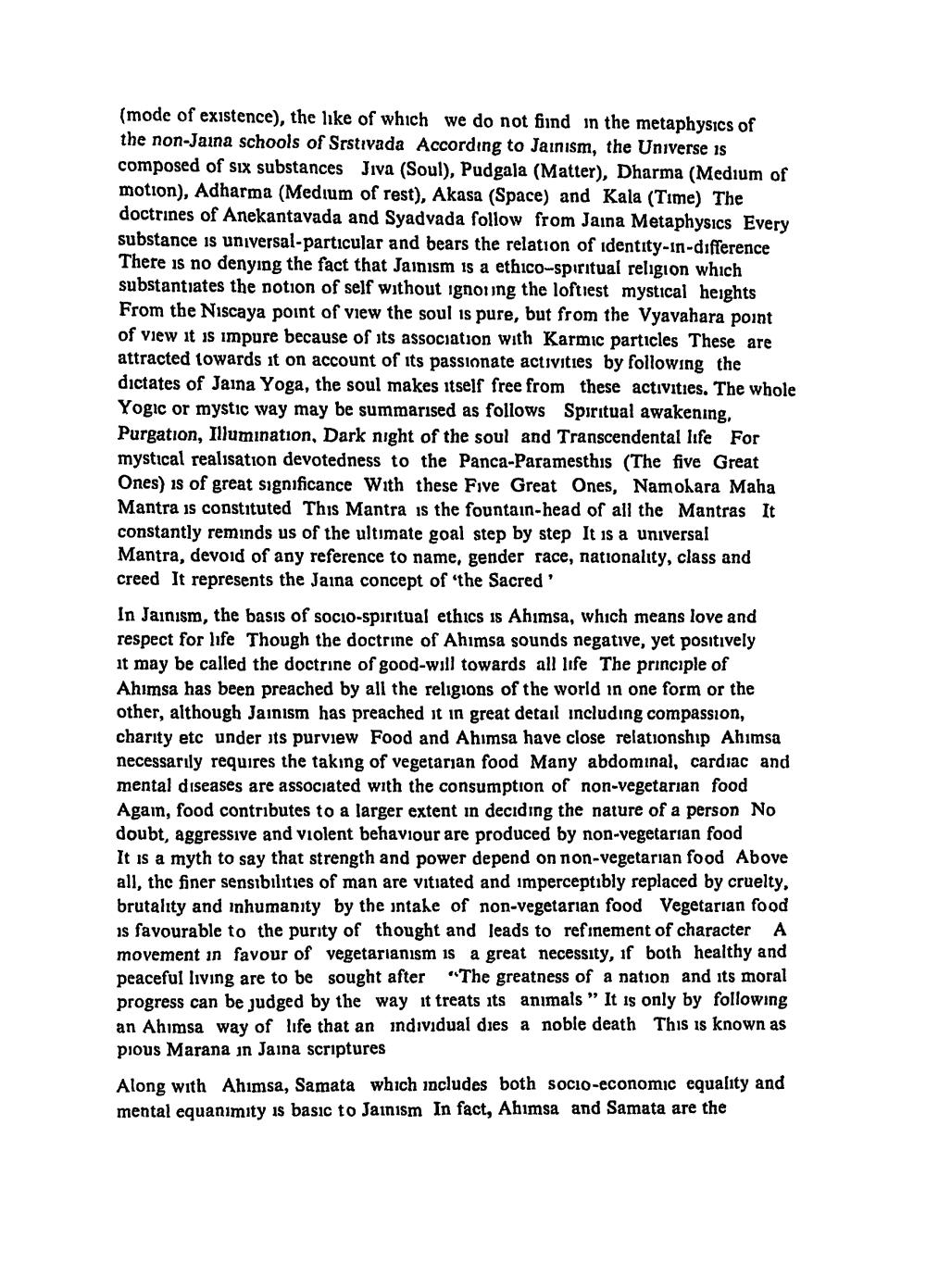________________
(mode of existence), the like of which we do not find in the metaphysics of the non-Jaina schools of Srstivada According to Jainism, the Universe is composed of six substances Jiva (Soul), Pudgala (Matter), Dharma (Medium of motion), Adharma (Medium of rest), Akasa (Space) and Kala (Time) The doctrines of Anekantavada and Syadvada follow from Jaina Metaphysics Every substance is universal-particular and bears the relation of identity-in-difference There is no denying the fact that Jainism is a ethico-spiritual religion which substantiates the notion of self without ignoung the loftiest mystical heights From the Niscaya point of view the soul is pure, but from the Vyavahara point of view it is impure because of its association with Karmic particles These are attracted towards it on account of its passionate activities by following the dictates of Jaina Yoga, the soul makes itself free from these activities. The whole Yogic or mystic way may be summarised as follows Spiritual awakening, Purgation, Illumination, Dark night of the soul and Transcendental life For mystical realisation devotedness to the Panca-Paramesthis (The five Great Ones) is of great significance With these Five Great Ones, Namokara Maha Mantra is constituted This Mantra is the fountain-head of all the Mantras It constantly reminds us of the ultimate goal step by step It is a universal Mantra, devoid of any reference to name, gender race, nationality, class and creed It represents the Jaina concept of the Sacred' In Jainism, the basis of socio-spiritual ethics is Ahimsa, which means love and respect for life Though the doctrine of Ahimsa sounds negative, yet positively it may be called the doctrine of good-will towards all life The principle of Ahimsa has been preached by all the religions of the world in one form or the other, although Jainism has preached it in great detail including compassion, charity etc under its purview Food and Ahimsa have close relationship Ahimsa necessarily requires the taking of vegetarian food Many abdominal, cardiac and mental diseases are associated with the consumption of non-vegetarian food Again, food contributes to a larger extent in deciding the nature of a person No doubt, aggressive and violent behaviour are produced by non-vegetarian food It is a myth to say that strength and power depend on non-vegetarian food Above all, the finer sensibilities of man are vitiated and imperceptibly replaced by cruelty, brutality and inhumanity by the intake of non-vegetarian food Vegetarian food is favourable to the purity of thought and leads to refinement of character A movement in favour of vegetarianism is a great necessity, if both healthy and peaceful living are to be sought after "The greatness of a nation and its moral progress can be judged by the way it treats its animals " It is only by following an Ahimsa way of life that an individual dies a noble death This is known as pious Marana in Jaina scriptures Along with Ahimsa, Samata which includes both socio-economic equality and mental equanimity is basic to Jainism In fact, Ahimsa and Samata are the




